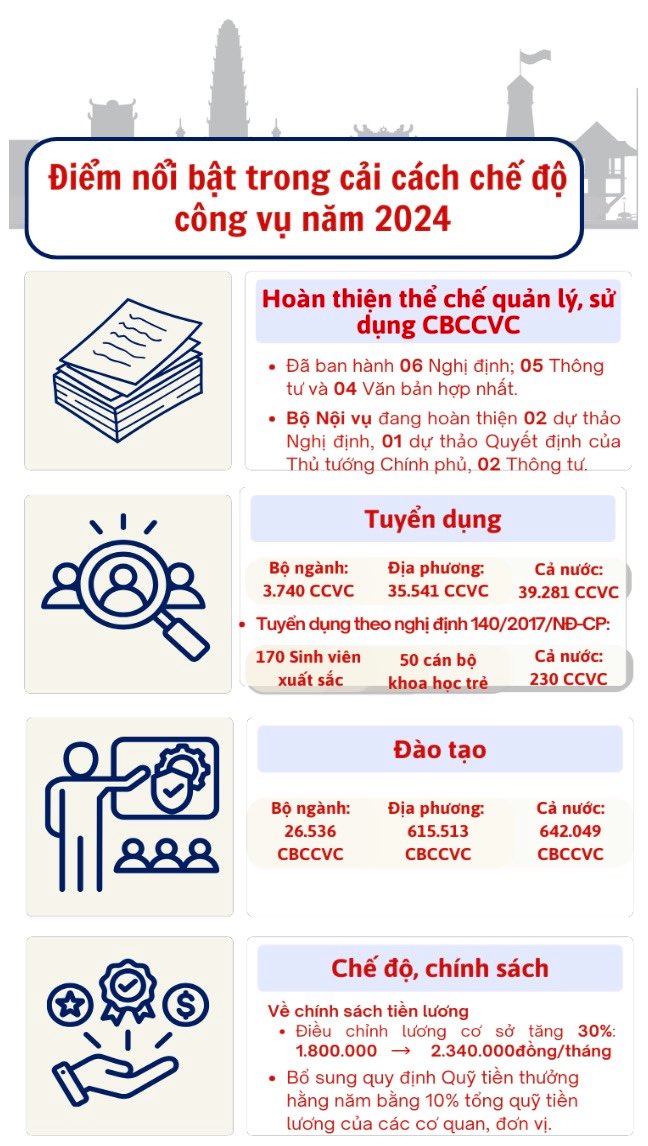The Government's Steering Committee for Administrative Reform has drafted a report on the implementation of administrative reform in 2024 and the direction and tasks of administrative reform in 2025.
Accordingly, the Ministry of Home Affairs has consulted and drafted 6 Decrees for the Government to issue, issued 5 Circulars and 4 consolidated documents under its authority.
In particular, the Ministry of Home Affairs has regulated standards for leadership and management positions and promoted decentralization and reformed administrative procedures in recruitment, use and management of civil servants and public employees; and is focusing on completing 2 draft Decrees, 1 draft Decision of the Prime Minister, and 2 Circulars.
Thereby, contributing to innovation in the management of cadres, civil servants and public employees (CBCCVC) according to job positions, rationalizing the structure, improving the quality of the CBCCVC team, meeting the requirements of the national administration in the new situation.
Continue to complete the dossier proposing the development of the Law on Cadres and Civil Servants (amended) to submit to the Government and the Prime Minister; urge and guide ministries, branches and localities to update and clean up data on cadres and civil servants of their agencies to connect with the National Database on Cadres and Civil Servants to ensure "correct - sufficient - clean - alive" according to regulations to gradually operate and exploit effectively.

In 2024, ministries, branches and localities nationwide recruited 39,281 civil servants and public employees, including 3,879 civil servants and 35,402 public employees; ministries and branches recruited 3,740 civil servants and public employees, including 561 civil servants and 3,179 public employees;
Localities recruited 35,541 civil servants and public employees, including 3,318 civil servants and 32,223 public employees; organized recruitment according to Decree No. 140/2017/ND-CP, recruited 230 people, including 170 excellent students and 60 young scientists.
State management of training and fostering of civil servants continues to be implemented effectively, with many innovations in the direction of promoting the application of information technology, linked to job positions; focusing on training, fostering, updating new knowledge, improving leadership and management skills for cadres at all levels, linked to title standards and planning.
Notably, in 2024, ministries, branches and localities have strengthened solutions to improve administrative discipline and public service discipline; promoted public service inspection, thereby promptly correcting violations and shortcomings in the recruitment, use and management of civil servants, especially the planning, appointment and reappointment of civil servants.
Continue to tighten discipline and administrative order and synchronously implement measures to push back the situation of shirking, avoiding, and lacking responsibility in performing tasks of civil servants.
Localities organized 2,792 inspections and examinations in the field of Home Affairs (including 326 inspections and 2,466 examinations) in 2024.











